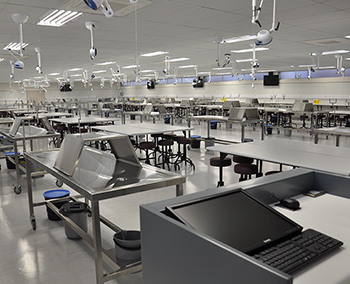Latest News Archive
Please select Category, Year, and then Month to display items
22 May 2020
|
Story Nitha Ramnath
![]()
A Virtual celebration of Africa Month
On 25 May 2020, Africa will celebrate the 57th anniversary of the founding of the Organisation of African Unity. A central tenet of the organisation, which was the predecessor of the African Union, is African solidarity. Member states undertook to coordinate and intensify their cooperation and efforts to achieve a better life for the people of Africa. The University of the Free State (UFS) has a long tradition of commemorating Africa Day and the ideas underpinning it. Every year, diverse events aimed at advancing African unity and solidarity take place during Africa Month – traditionally, the highlight is the Africa Day Memorial Lecture hosted by the University's Centre for Gender and Africa Studies.
This year, celebrating African unity through significant events involving the physical presence of a large number of people, will likely be impossible. COVID-19 is ravaging the world and Africa may become one of the world regions worst affected by the consequences of the virus. Social distancing may be difficult to achieve in a continent with densely populated urban centres that often feature large informal settlements. Besides, the economies of African nations are not as robust as those of other world regions. The challenge that Africa is facing, appears to be one that can only be mastered by its people acting in solidarity and unity. The continent has already developed an Africa Joint Continental Strategy for COVID-19 Outbreak to combat the virus, and an Africa Taskforce for Coronavirus has been established. The ideas of African togetherness and the underpinning philosophy of Ubuntu may be critical for strengthening African solidarity at a time when it may be more relevant than ever.
The commemoration of Africa Day takes a different theme each year. This year, the UFS 2020 Africa Month celebrations will take a virtual format, with the theme of ‘Africa together forever’ underpinned by the COVID-19 global pandemic. The theme is particularly significant considering the context of the African continent; and only through the demonstration of solidarity and unity can Africa overcome the challenges of the global pandemic.
The University will host a variety of cultural and intellectual contributions on the dedicated UFS virtual Africa Month website. On Africa Day (25 May 2020), a virtual Africa Day function, which will be posted on the website, will conclude the Africa Month commemorations.
The diverse contributions to the 2020 virtual Africa Month activities will highlight the University’s commitment towards creating a diverse, challenging intellectual environment. The UFS strives as a research-led university, to provide an environment in which new ideas are incubated and debated; contributing towards its transformation process and African unity.
New modern dissection hall ensures optimal learning experience for medical students
2015-12-14

New Dissection Hall in the Francois Retief Building on the Bloemfontein Campus.
Photo: Stephen Collett
|
The School of Medicine in the Faculty of Health Sciences at the university opened its doors on 6 June 1969. Three years later, a dissection hall for anatomy training was added to the school. This year, because of the prospective growth in the number of medical students as well as in changing methods of teaching and training, a new modern Dissection Hall has been completed on the Bloemfontein Campus. This ensures that students receive an optimal learning experience during dissection tuition.
The Dissection Hall was built as a double-storey wing to the existing Francois Retief Building. Covering 733m², the new facility is on the first floor - the same level as the existing hall - to allow easy access between the two facilities. The ground floor, totalling 465m², houses various offices for 16 people.
The new hall has special lighting and modern equipment for the training of second-year medical students in dissection. The hall also has high-quality sound and computer equipment. A unique camera system allows students to follow dissection demonstrations on 10 screens in the hall. Dissection demonstrations are recorded, enabling lecturers to compile new visual aid material for teaching and learning.
The dissection programme for medical students is of critical importance, not only for acquiring anatomical knowledge, but also for developing critical skills in medical students.
The new hall is also used for clinical workshops and postgraduate teaching seminars, as well as workshops in orthopaedics (shoulder, hip, and knee), otorhinolaryngology, cardiothoracic surgery (valve and endoscopy), and anaesthesiology, among others.
Both present and future generations of medical students will benefit from this new world-class facility.